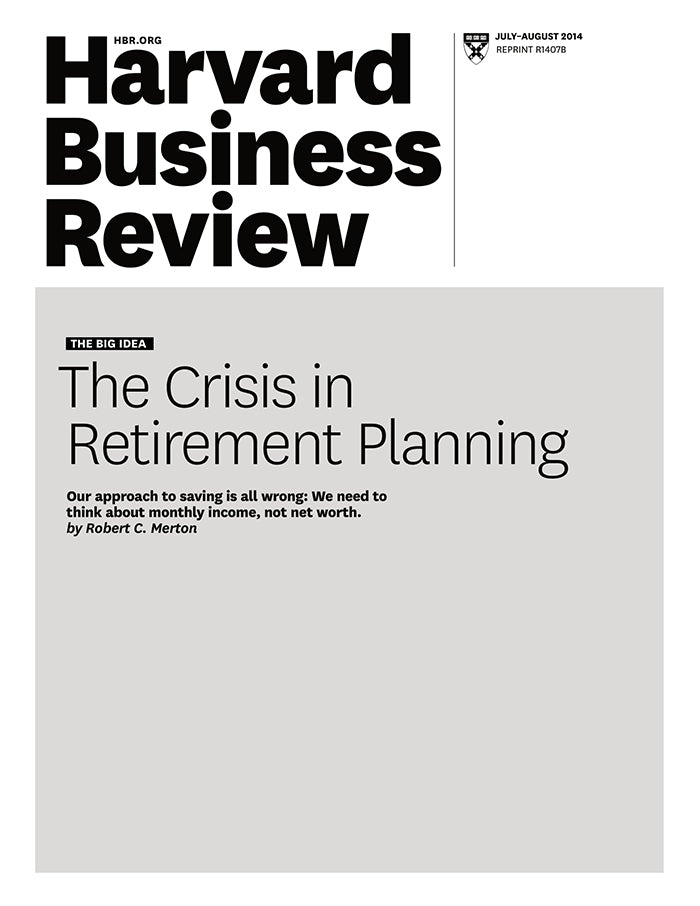The Crisis in Retirement Planning
受取状況を読み込めませんでした
Corporate America began to really take notice of the looming retirement crisis in the wake of the dot-com crash, when companies in major industries went bankrupt in large part because of their inability to meet their pension obligations. The result was an acceleration of America's shift away from employer-sponsored pension plans toward defined-contribution plans--epitomized by the ubiquitous 401(k)--which transfer the investment risk from the company to the employee. With that transfer has come a dangerous shift in investment focus, argues Nobel Laureate Robert C. Merton. Traditional pension plans were conceived and managed to provide members with a guaranteed income. And because that objective filtered right through the scheme, members thought of their benefits in those terms. Ask a member what her pension is worth and she'll reply with an income figure: "two-thirds of my final salary," for example. Most DC schemes, however, are designed and managed as investment accounts with the goal of accumulating the largest possible pot of savings. Communication with savers is framed entirely in terms of assets and returns. Ask a saver what his 401(k) is worth and you'll hear a cash amount and perhaps a lament to the value lost in the financial crisis. The trouble is that investment value and asset volatility are simply the wrong measures if your goal is to secure a particular future income. In this article, Merton explains a liability-driven investment strategy whose aim is to improve the probability of achieving a desired retirement income rather than to maximize the capital value of the savings.
【書誌情報】
ページ数:10ページ
サイズ:A4
商品番号:HBSP-R1407B
発行日:2014/7/1
登録日:2014/7/14


